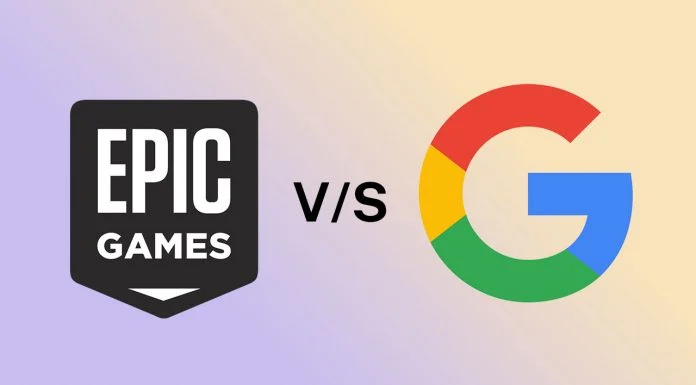In a significant showdown reminiscent of the legal battle between Epic Games and Apple, Epic Games and Google found themselves in federal court on November 6, entangled in a high-stakes antitrust trial. The case revolves around Epic’s allegations that Google has leveraged its dominance in the Android apps market to impose fees on developers and coerce them into utilizing Google’s proprietary payment system. In this pivotal legal duel, Epic seeks to establish an alternative payment method to circumvent Google’s charges.

The legal tussle between Fortnite publisher Epic Games and tech giant Google adds yet another layer to Google’s mounting antitrust woes. Already embroiled in an antitrust trial regarded as the most significant since the U.S. confronted Microsoft in the 1990s, Google now faces a parallel lawsuit brought by Epic Games.
The Crux of the Matter
The heart of this case dates back to 2020 when Epic Games initiated legal action against both Google and Apple, contending that these tech giants impose what they dub the “Google Tax” and “Apple Tax” on developers as a condition for using their app stores to facilitate transactions. Epic further argued that both companies prohibit developers from deploying their payment systems, thereby stifling competition and innovation in the app market.
While Epic previously engaged in a legal battle with Apple over these issues, this marks the first instance where Google faces a courtroom showdown over the same matter.
Epic’s Battle for a Separate Payment System
Epic Games, the creator of the immensely popular Fortnite, offers a free-to-play game where players use real money to make in-app purchases, such as V-Bucks (the in-game currency). These in-app transactions occur through Google’s systems, which typically incur a 30% transaction fee retained by the company. Epic Games contested this arrangement, asserting that it should have the liberty to provide an alternative payment option to users, thereby bypassing the necessity of paying fees to Google, and by extension, Apple.
In response, Epic Games implemented an alternate payment system, explicitly violating both companies’ policies. Subsequently, both Apple and Google banned the game from their respective app stores, further intensifying the legal conflict.
Apple’s Legal Victory
The legal battle against Apple reached the courtroom in 2021 and culminated in a ruling that predominantly favored Apple. However, the case against Google faced multiple delays, leaving it pending until the recent court appearance.
Epic’s Lone Crusade
Epic Games was formerly joined in this legal crusade by Match Group, the parent company of Tinder. Nevertheless, an out-of-court settlement has severed this partnership, leaving Epic Games to wage this battle solo.
The Significance of the Case
This lawsuit against Google bears immense significance, as it resonates far beyond the courtroom. Google has encountered parallel antitrust challenges in various regions, including India. The tech giant has consistently argued that the fees it imposes are essential for maintaining the security of Android devices. Google maintains that allowing third-party apps or sideloading apps on Android would dismantle the fundamental security mechanisms, jeopardizing Android’s ability to compete with the iPhone.
To address these concerns, Google has introduced changes to its policies in specific markets, including the launch of the “User Choice Billing” program in 2022, which entails reduced fees.
Witnesses in the Epic vs Google Case
Anticipation looms over the witnesses set to testify in the Epic vs Google case. The case is expected to feature testimonies from Google CEO Sundar Pichai and Epic CEO Tim Sweeney. Google has indicated that current Android, Chrome, and Chrome OS chief Hiroshi Lockheimer may also provide testimony, along with representatives from Apple, Netflix, Motorola, and AT&T.
The verdict in this case could potentially reshape the dynamics of the tech industry and set precedent for the evolving landscape of antitrust regulations.
Editor’s Note: This legal confrontation underscores the ongoing scrutiny faced by tech giants and the intricate balance between competition, innovation, and regulation in the ever-evolving tech industry.



